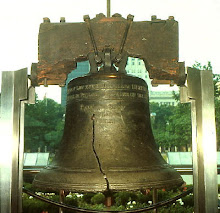
Scanners, can't even get them to work on a computer, and now here they are on Hollywood police cars. And all it does is snap a little picture of your license plate tag. The Sun Sentinel so reports today. Fascinating:
"These things are awesome," said Hollywood Police Lt. Scott Pardon, whose traffic unit, in just a few weeks, recovered one stolen car, one stolen tag and made two arrests.
I am beginning to think there is no such think as privacy anymore, so it is impossible to invade it. I do know this system is also used to help people find their vehicles when they lose them in airport, stadium and large shopping mall parking lots, like at Sawgrass Mills: "Oh, yes of course we know where your green chevrolet is, you do do, you parked in the blue lot on the south side, not the red lot on the north."
Related links
Graphic: How license plate scanners work
Graphic: How license plate scanners work
Police everywhere say it's an effective crime-fighting tool while allowing officers to multi-task. But privacy-rights groups take issue with authorities taking and storing information on noncriminals, something they say is too Big Brother-like."If I have never gotten a ticket or have never done anything wrong, I should have the right to know if the picture of my car is in the database, and what are they doing with it," said Lillie Coney, with the Washington, D.C.-based Electronic Privacy Information Center.
"It's not that they are looking at license plates and taking pictures of cars belonging to innocent people," said Barry Butin, co-counsel of the ACLU's Broward chapter. "We are more concerned with what they do with the information later."
Butin and others say there's a potential for misuse, such as an officer tracking a girlfriend, or police prying into the comings and goings of law-abiding citizens.In Aventura, police have been taking thousands of images and tag information since December. They say the information is stored permanently for possible use in future investigations. Punch in a tag and, if the scanner ever came across it, the system will indicate where and when.Plate recognition systems vary by vendor, but most work the same way: Once a camera shoots an image of a tag, the plate number is run through a constantly updated database of stolen cars and tags. A computer inside the cruiser alerts the officer when it finds a hit.
During a recent demonstration, Aventura Police Officer John Methvin drove around the Aventura Mall parking lot, zipping through three tags a second as his car slowly cruised the aisles. His cruiser has three sets of cameras mounted on the roof. He processes about 2,000 tags a day, most of them at the mall.A laptop computer plays a steady beat of "clicks" after each picture is taken. Suddenly, an alarm alerts Methvin to a "possible stolen car.""I get this one every time I drive by here," he said. It's a mall employee whose Florida plate has letters and numbers that match a stolen car from Canada.
The Broward Sheriff's Office, which covers 14 cities including Pompano Beach, Tamarac and Cooper City, has 35 license plate recognition systems mounted on patrol cars and at fixed locations throughout the county, scanning an average of 300,000 plates a month, said spokesman Mike Jachles. The department has been using the system about a year.
Many departments say the goal is to have all agencies share the same information. Police emphasize the scanning system does not run a full background check on every tag. That would overload the database system, they said. "It's a crime-fighting tool used to find violent offenders or violent criminals. This is not Big Brother watching," Jachles said. "We're not looking for expired tags, or things like that. If we did, we would be too busy to do other things."
Does anyone really believe this is not the mother of all database systems designed to garner and store as much information as is possibly useful later on down the road? Who are we kidding?
































No comments:
Post a Comment